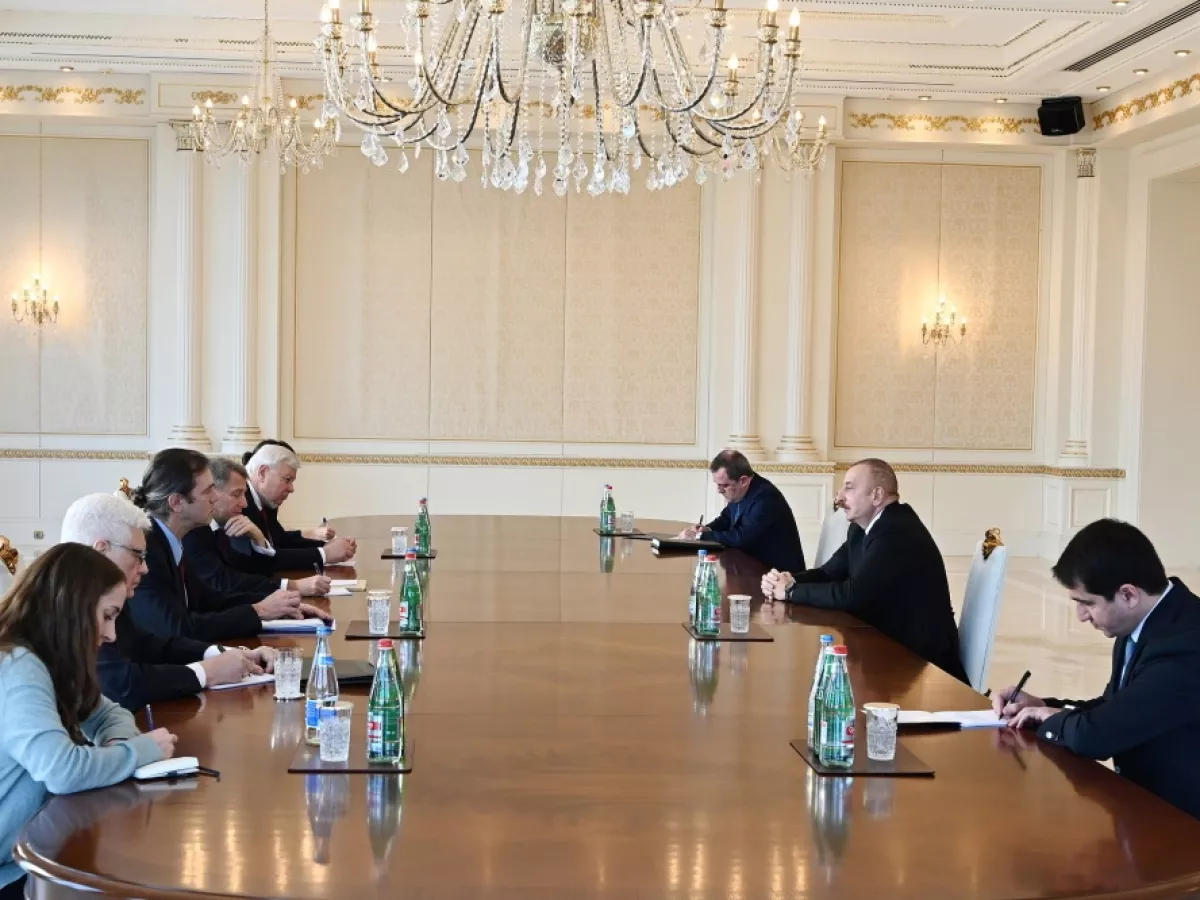Armenian push to resurrect Karabakh issue Reviving the dead horse
In Armenia, and within the global Armenian community, there is an ongoing campaign to inflate the so-called "Nagorno-Karabakh issue." The latest development in this campaign is particularly noteworthy for its specifics.
As we’ve previously reported, former separatist leader Shahramanyan has once again claimed that his signature on the self-dissolution of the junta was unconstitutional. Now, according to Armenian media, in what appears to be a continuation of this broader campaign, on September 2, around 50 organizations from the "civil society of the Republic of Artsakh" submitted a statement to Ian Borg, the current head of the Organization for Security and Co-operation in Europe (OSCE).
Before delving into the details of this statement, it’s important to note that Azerbaijan is advocating for the formal dissolution of the OSCE Minsk Group. Furthermore, Azerbaijan is calling on Armenia to join in a joint appeal to the organization with this request. This move, as Baku has repeatedly emphasized, aims to confirm that Yerevan is genuinely committed to the peace process and does not harbor any revanchist intentions towards Azerbaijan.
Recently, Prime Minister Pashinyan commented on the matter, stating that while Yerevan is not opposed to the idea, it requires time, effectively rejecting Baku’s proposal. Now, representatives of the separatists from Karabakh who have relocated to Armenia are writing a letter to the OSCE.
The significance of this letter is primarily tied to the broader campaign of the global Armenian community and its international supporters. Otherwise, the correspondence of a small group of separatists would not merit much attention on its own. Additionally, the concept behind this appeal seems to echo the ideas of former Armenian Foreign Minister Vartan Oskanian, whose views have resurfaced.
The letter is replete with misinterpretations of international law and reality. For instance, the signatories refer to the OSCE Minsk Group as "the only international body mandated with achieving a peaceful settlement of the Nagorno-Karabakh conflict."
While the Minsk Group did once hold an international mandate for addressing the Nagorno-Karabakh conflict, Azerbaijan has never ruled out a military solution to the issue, and no one has ever denied it this right. All external actors recognize Karabakh as part of Azerbaijan.
Consider the following statement: "Any forcible transformation in the conflict zone cannot be considered legitimate."
This phrase contains a fundamental contradiction. The term "conflict" in the context of Karabakh inherently involves the use of force. If one has already chosen to initiate a conflict, one must be prepared for the opposing side to resolve it.
The Minsk Group's relevance was based on Azerbaijan's willingness to await a fair and peaceful resolution to the Karabakh conflict. After not receiving such a resolution, Azerbaijan decided to address the issue independently, fully exercising its right to restore its territorial integrity. The Minsk Group lost its relevance. There is no other interpretation of the situation, which is also reflected in the Minsk Group's behavior. Following President Aliyev's public criticism of the group in 2020 for its ineffectiveness, the co-chairing countries have been cautious about commenting on the Armenia-Azerbaijan situation in the context of the OSCE Minsk Group’s activities.

Azerbaijan suggests holding a joint funeral for the deceased, while the Armenian mafia (in this context, the global Armenian diaspora) appears to be trying to resurrect it, akin to voodoo sorcerers. Not only do they seek to bring him back, but they also demand specific actions from him. This leads us to the most intriguing aspect of the letter, the core message that revealed in the following passage: “We are asking you to display a responsible attitude and respect to the OSCE decisions on Nagorno-Karabakh and to create conditions for holding a conference on Nagorno-Karabakh in the nearest future. It is absolutely clear that now only an international conference on Nagorno-Karabakh can make the political decisions necessary to restore the violated human rights in this region.”
The Armenian side is now pushing for the convening of an international assembly. Despite its absurdity, this goal could seriously disrupt the peace process on the ground, as it represents what can only be described as a tangible illusion. An "International Assembly for Karabakh Armenians" carries a clear sense of fetishism, adding to the collection of other Armenian ideological symbols, such as the "Armenian Genocide," the "Treaty of Sèvres," or "secession for salvation."
This raises doubts about whether Pashinyan truly seeks the same outcome as the outraged separatists. In reality, this conflict is largely superficial. Both Pashinyan and the opposition are pandering to their electorate, playing on their most sensitive emotions, including a thirst for revenge. The only difference is the intensity. In this case, the "Artsakh" group, clearly backed by the Karabakh clan, is simply trying to wrest control of the "Karabakh Armenians issue" from Pashinyan.
Pashinyan, however, hesitates to ban these organizations because, first, he fears fueling greater social discontent, and second, he uses the issue as leverage to secure aid programs from the West.
Considering all these factors, it becomes even more evident that Armenia is far from accepting the new realities or respecting international law, particularly regarding Azerbaijan's territorial integrity. As the saying goes, "You can't squeeze blood from a stone."








